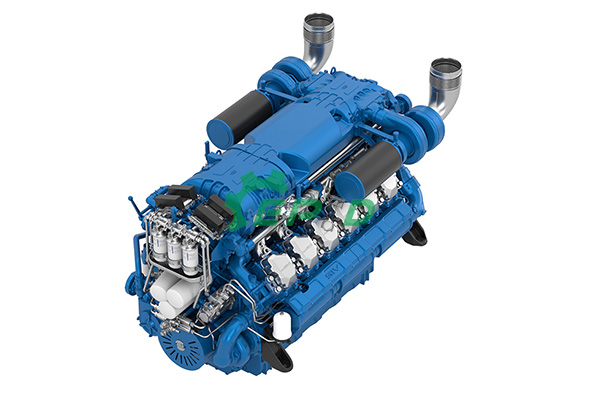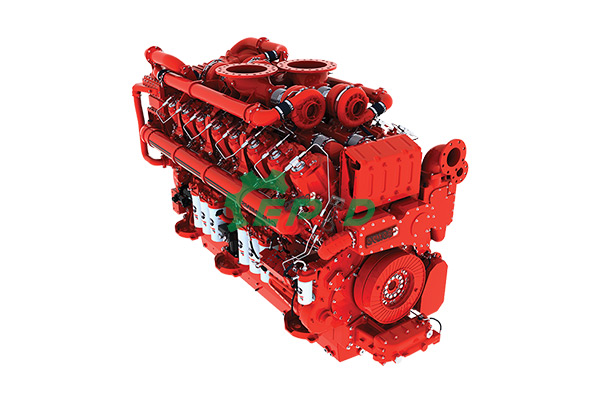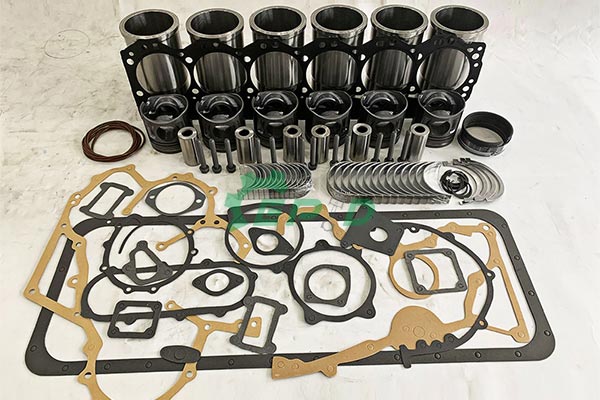In the realm of industrial and marine propulsion systems, Baudouin and Cummins stand out as two globally recognized brands with distinct engineering philosophies and market reputations. While both companies specialize in diesel engines for heavy-duty applications, their design principles, technological innovations, and market focuses differ significantly.
1. Core Engineering Philosophies
Baudouin prioritizes modularity and customization. Its engines are designed for seamless integration into specialized marine applications, such as fishing vessels, yachts, and patrol boats. Baudouin’s compact designs often feature advanced cooling systems to handle saltwater corrosion and high humidity. For instance, the Baudouin M26.3 engine series emphasizes lightweight construction without compromising torque output, making it ideal for space-constrained vessels.

Cummins, by contrast, focuses on standardization and scalability. Its engines, such as the QSK95 or X15 series, are built for mass-market versatility, serving industries from long-haul trucking to data center power backup. Cummins leverages cutting-edge technologies like ADEPT™ (Advanced Dynamic Efficient Power Technology) to optimize fuel economy and emissions compliance across varying loads. This “one-size-fits-many” approach ensures cost efficiency for large-scale deployments.
2. Performance and Application Focus
– Marine Expertise (Baudouin):
Baudouin engines excel in marine propulsion, particularly in the 100–2,000 kW range. Their inboard engines are optimized for low-end torque and smooth acceleration, critical for maneuvering in rough seas. The brand also emphasizes hybrid-ready configurations, aligning with the maritime industry’s shift toward decarbonization. For example, Baudouin’s ProHybrid system integrates diesel engines with electric batteries for reduced emissions.

– Diverse Industrial Reach (Cummins):
Cummins dominates in multi-sector adaptability. Its engines power everything from mining trucks to hospital generators. The QSL9 engine, for instance, is equally effective in agricultural machinery and mid-sized ferries. Cummins’ broad power spectrum (50–4,500 kW) and compatibility with alternative fuels (natural gas, hydrogen) make it a go-to choice for industries prioritizing fuel flexibility.
3. Emissions Compliance and Sustainability
Both brands adhere to stringent emissions standards, but their strategies differ:
– Baudouin aligns closely with IMO Tier III and EU Stage V regulations, focusing on SCR (Selective Catalytic Reduction) systems tailored for marine exhaust aftertreatment. Its engines often incorporate closed-loop cooling to minimize environmental impact in sensitive ecosystems.
– Cummins adopts a global approach, ensuring compliance with EPA Tier 4 Final, Euro VI, and other regional standards. Its Single Module™ aftertreatment system reduces NOx and particulate matter without requiring additional diesel exhaust fluid (DEF) in certain models, simplifying maintenance for end-users.
4. Service and Support Networks
Cummins’ unparalleled global service infrastructure—spanning 190+ countries—gives it an edge in after-sales support. Its PowerCare agreements offer 24/7 troubleshooting and predictive maintenance via telematics. Baudouin, while smaller in scale, provides highly personalized service through regional marine specialists, often delivering faster turnaround times for custom parts in niche markets.
5. Cost and Longevity Considerations
Baudouin engines typically command a premium price due to their specialized marine components and bespoke configurations. However, their corrosion-resistant materials (e.g., nickel-chromium crankshafts) extend operational lifespans in saltwater environments. Cummins, benefiting from economies of scale, offers more cost-effective solutions for high-utilization scenarios, with parts widely available through third-party suppliers.
Choosing the Right Engine
– Opt for Baudouin if:
Your project demands a marine-specific engine with exceptional corrosion resistance, hybrid capabilities, and customization for unique vessel designs.
– Choose Cummins if:
You require a versatile, fuel-agnostic engine backed by a robust global support network, particularly for terrestrial industries or large-scale marine fleets.
Ultimately, the decision hinges on application-specific needs. Baudouin shines in specialized maritime niches, while Cummins delivers unmatched versatility and cost efficiency for broad industrial use. Both brands, however, exemplify engineering excellence in their respective domains.


